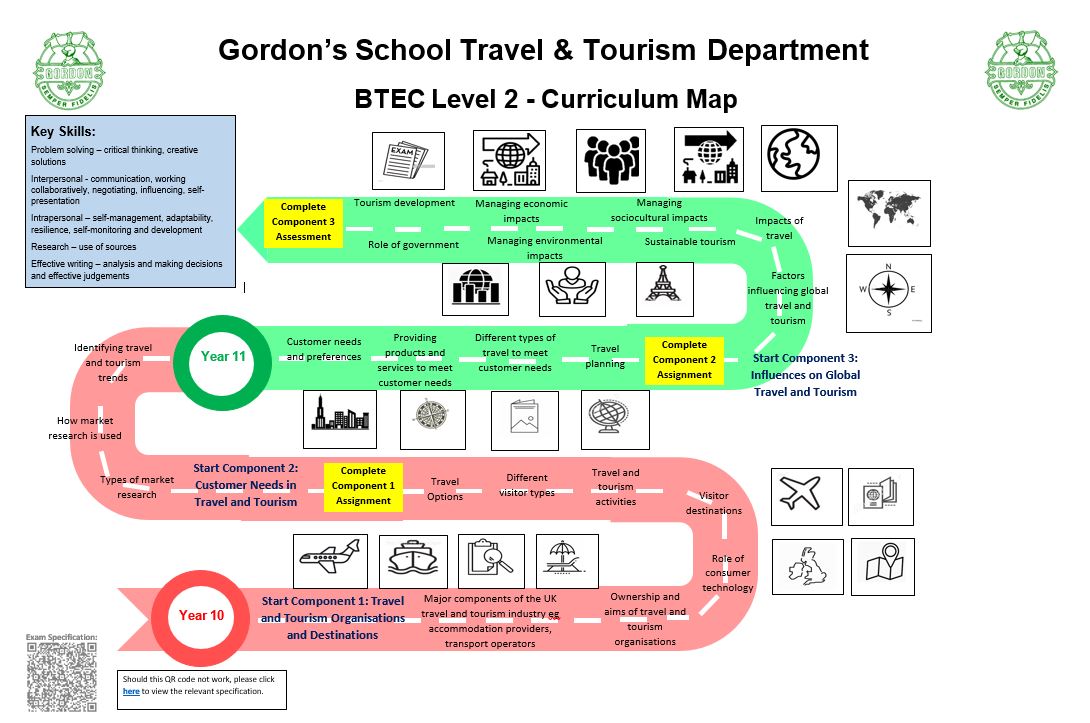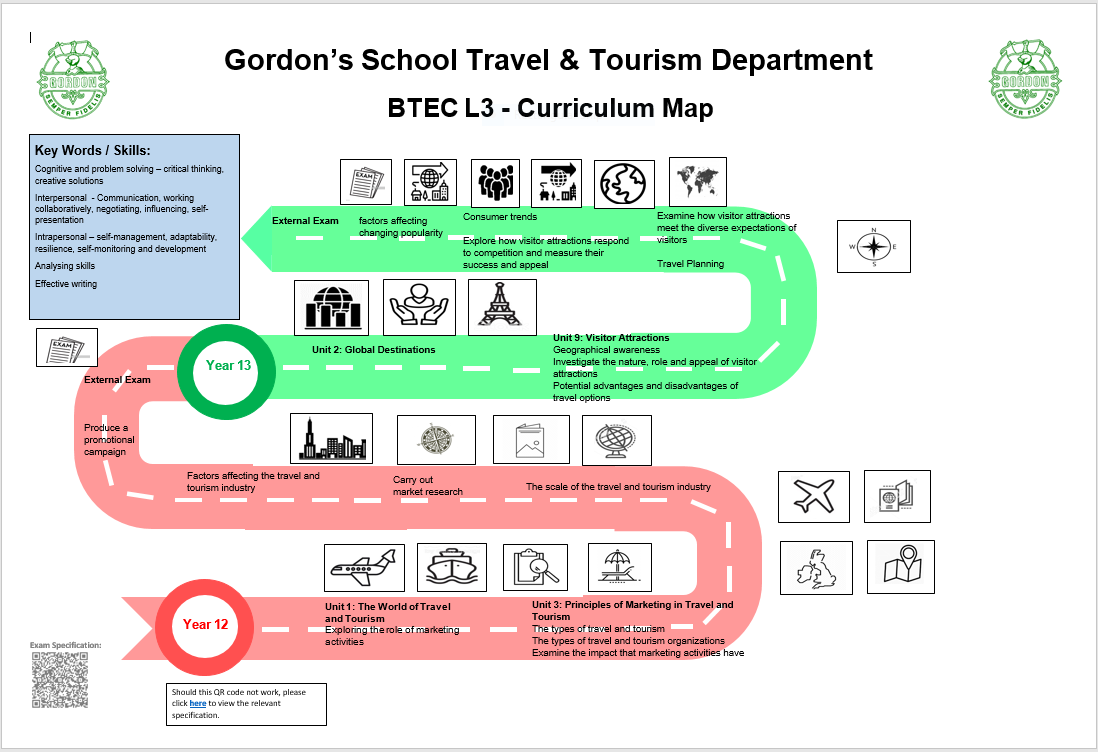TRAVEL AND TOURISM
SUMMARY
Level 2 BTEC Travel and Tourism
BTEC qualifications were originally designed for use in colleges, schools and the workplace as an introductory Level 2 course for learners wanting to study in the context of a vocational sector. This is still relevant today. The knowledge, understanding and skills learnt in studying a BTEC will aid progression to further study and prepare learners to enter the workplace in due course. Entry-level employment opportunities in travel and tourism include junior roles such as assistant travel agent, tourist information clerk or member of a visitor attraction team.
Skills Attained:
BTECs are vocationally related qualifications, where learners develop knowledge and understanding by applying their learning and skills in a work-related context. Additionally, they are popular and effective because they engage learners to take responsibility for their own learning and to develop skills that are essential for the modern-day workplace. These skills include team working; working from a prescribed brief; working to deadlines; presenting information effectively; and accurately completing administrative tasks and processes. BTEC qualifications motivate learners, and open doors to progression into further study and responsibility within the workplace.
Assessment:
Pearson BTEC Level 1/Level 2 Tech Award in Travel and Tourism
60% Internal assessment
40% External assessment
|
Year 10 |
Weighting |
Details |
|
Component 1: Travel and Tourism Organisations and Destinations |
30% |
Internally assessed assignment set by Pearson but completed in the centre. |
|
Year 11 |
Weighting |
Details |
|
Component 2: Customer Needs in Travel and Tourism |
30% |
Internally assessed assignment set by Pearson but completed in the centre. |
|
Component 3: Influences on Global Travel and Tourism |
40% |
External assessment set and marked by Pearson, completed under supervised conditions. The assessment will be completed in 2 hours within the period timetabled by Pearson. 60 marks. |
This course is graded from Level 2 Pass to Level 2 Distinction*. Learners who do not achieve at Level 2 may achieve a grade of Level 1 Pass. Learners whose level of achievement is below Level 1 will receive an Unclassified (U) result
Future Opportunities:
This BTEC Travel and Tourism qualification aims to:
● inspire and motivate learners to consider a career in the travel and tourism sector. Tourism is one of the fastest growing sectors in the UK in employment terms, employing nearly 3 million people.
● give learners the opportunity to gain broad knowledge and understanding of, and develop skills in, the travel and tourism sector and that are essential for successful performance in working life.
● support progression to a more specialised Level 3 vocational qualification such as the Edexcel BTEC Level 3 National in Travel and Tourism, or an academic course such as an A Level in Travel and Tourism, or a BTEC Apprenticeship in Travel Services
● give learners the potential opportunity, in due course, to enter employment within a wide range of posts across the travel and tourism sector, for example in travel agencies, visitor attractions and accommodation.
Course Information
Summary
The BTEC Level 3 National Extended Certificate in Travel and Tourism (equivalent in size to one A Level) is assessed through a combination of coursework and external assessment methods, including an exam and also a timed two day assessment on pre-release material. It is designed for students who are interested in learning about the Travel sector alongside other fields of study, with a view to progressing to a wide range of higher education courses, including university and apprenticeships, as well as help prepare them for future employment. During this course students will understand the world of travel and tourism, how it has changed with the increase of technology and also the principles of marketing in the sector.
Entry Criteria
GCSE Grade 4 in English and a Merit is required.
Course Information


